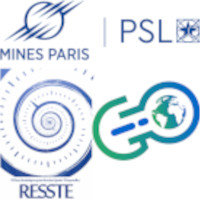Physics-informed neural networks (PINNs) are a promising approach that combines the power of neural networks with the interpretability of physical modeling. PINNs have shown good practical performance in solving partial differential equations (PDEs) and in hybrid modeling scenarios, where physical models enhance data-driven approaches. However, it is essential to establish their theoretical properties in order to fully understand their capabilities and limitations. In this talk, I will highlight that classical training of PINNs can suffer from systematic overfitting. This problem can be addressed by adding a ridge regularization to the empirical risk, which ensures that the resulting estimator is risk-consistent for both linear and nonlinear PDE systems. However, the strong convergence of PINNs to a solution satisfying the physical constraints requires a more involved analysis using tools from functional analysis and calculus of variations. In particular,for linear PDE systems, an implementable Sobolev-type regularization allows to reconstruct a solution that not only achieves statistical accuracy but also maintains consistency with the underlying physics.
- Poster

 PDF version
PDF version

